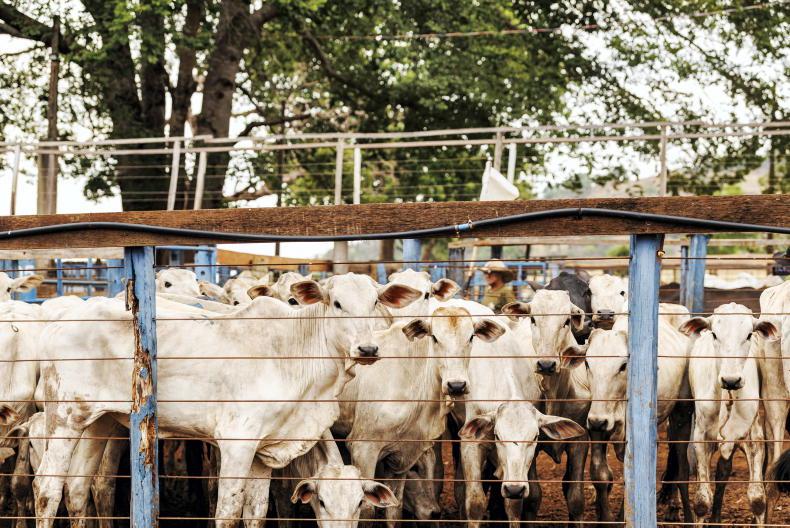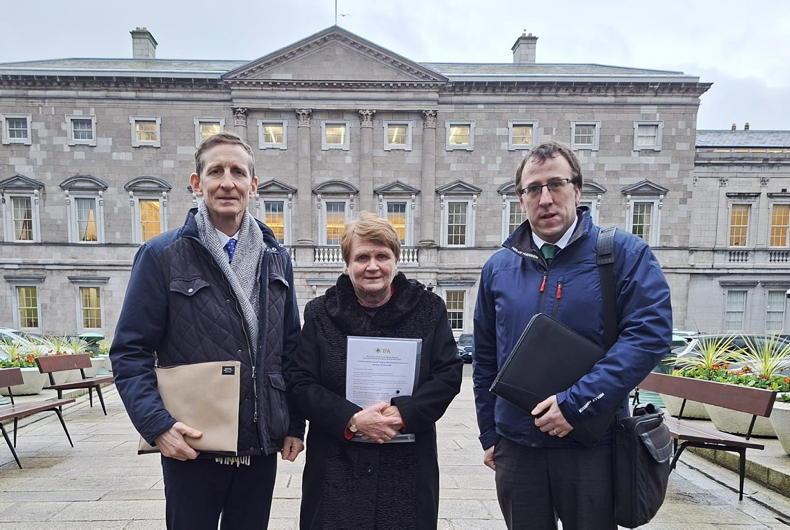Another week, another deadline for Brexit talks.
This time it is Sunday evening, with British Prime Minister Boris Johnston and European Commission president Ursula von der Leyen having identified that as D-day for negotiations on a future trading relationship.
As we head into the weekend, the mood music does not look good, with both sides reinforcing the deep divides that remain and warning of a likely collapse.
Whether this is a strategy to create a dramatic theatrical narrative ahead of a last-minute late-night deal or merely reflecting the genuine concerns, time will tell.
For farmers, it is a case of damage limitation. There is no such thing as a good Brexit for farmers.
Deal or no deal, farmer incomes are still going to be in the firing line.
Immediate impact
In the case of a no-deal, the impact will be immediate and severe. A tariff wall of up to €1.3bn per annum will immediately be imposed on agri food imports from Ireland into Britain.
The Government calculates the total tariff bill for the country to be €1.7bn, meaning that the Irish agri food sector will carry 77% of the country’s total tariff bill.
A combination of our unique exposure to the British agri food market plus the high rate of tariffs applied to agri food products, over 70% in the case of beef, means Ireland, accounting for just 5% of UK-EU trade, will carry almost 20% of the total EU tariff bill.
The bulk of this will be carried by Irish farmers.
Unique exposure
Given Ireland’s unique exposure and that of its agricultural sector, the extent to which issues in the fishing, energy and aviation industries are dominating discussions at present is hugely concerning.
With 20 of the 27 member states having little exposure to a no-deal Brexit, this is not a negotiation process where all parties have equal skin in the game.
It is a scenario that reinforces the importance of making sure EU member states understand that the exposure of Ireland’s agri food sector to a no-deal Brexit is not in fact an Irish problem, but an EU one.
A €750m per annum tariff wall on Irish beef imports into the UK, potentially introduced within weeks, would see the equivalent of 250,000t of Irish beef per annum flooding into EU markets.
Armageddon
In an address to the Agricultural Committee of the European Parliament earlier this week, IFA president Tim Cullinan described a no-deal Brexit as Armageddon for the Irish beef industry.
While correct, it is vital that all member states are made to understand that it is also Armageddon for European agriculture.
It is a message that must be reinforced in the hours ahead.
Member states must stand ready to deploy tariff equalisation measures that ensure the Irish agri food sector can continue to trade into the British market in a no-deal scenario from January onwards – for example, the EU would bear the cost of any tariff wall.
Keeping a presence in the British market in a no-deal scenario will be critical. Therefore, a tariff equalisation fund should be the preferred route over putting product into storage.
Attention should then turn to creating market demand and value across the EU by reviewing non-EU imports - particularly beef imports from South America.
While we all hope for a deal on Sunday, if achieved, it cannot be celebrated as a success.
In this week's editorial, I highlight the fact that while a deal might remove the initial impact of tariffs, it won’t protect Irish farmers from the impact of value destruction in a British market.
A market where New Zealand, Australia, US and South American product will quickly start appearing on shelves.
Regardless of the outcome of this weekend’s talks, Brexit will transform Irish agriculture in the years ahead.
But should this weekend’s talks collapse without a deal, we will just be weeks away from one of the biggest shocks to not just Irish but European agriculture in recent decades.
The EU must stand ready to immediately deploy the necessary measure to protect Irish farmers and, in doing so, protect EU agricultural markets for all member states.
Read more
Down to Agribusiness podcast: will there be a Brexit deal?
Meat industry cannot prepare for massive and damaging tariffs – MII
Another week, another deadline for Brexit talks.
This time it is Sunday evening, with British Prime Minister Boris Johnston and European Commission president Ursula von der Leyen having identified that as D-day for negotiations on a future trading relationship.
As we head into the weekend, the mood music does not look good, with both sides reinforcing the deep divides that remain and warning of a likely collapse.
Whether this is a strategy to create a dramatic theatrical narrative ahead of a last-minute late-night deal or merely reflecting the genuine concerns, time will tell.
For farmers, it is a case of damage limitation. There is no such thing as a good Brexit for farmers.
Deal or no deal, farmer incomes are still going to be in the firing line.
Immediate impact
In the case of a no-deal, the impact will be immediate and severe. A tariff wall of up to €1.3bn per annum will immediately be imposed on agri food imports from Ireland into Britain.
The Government calculates the total tariff bill for the country to be €1.7bn, meaning that the Irish agri food sector will carry 77% of the country’s total tariff bill.
A combination of our unique exposure to the British agri food market plus the high rate of tariffs applied to agri food products, over 70% in the case of beef, means Ireland, accounting for just 5% of UK-EU trade, will carry almost 20% of the total EU tariff bill.
The bulk of this will be carried by Irish farmers.
Unique exposure
Given Ireland’s unique exposure and that of its agricultural sector, the extent to which issues in the fishing, energy and aviation industries are dominating discussions at present is hugely concerning.
With 20 of the 27 member states having little exposure to a no-deal Brexit, this is not a negotiation process where all parties have equal skin in the game.
It is a scenario that reinforces the importance of making sure EU member states understand that the exposure of Ireland’s agri food sector to a no-deal Brexit is not in fact an Irish problem, but an EU one.
A €750m per annum tariff wall on Irish beef imports into the UK, potentially introduced within weeks, would see the equivalent of 250,000t of Irish beef per annum flooding into EU markets.
Armageddon
In an address to the Agricultural Committee of the European Parliament earlier this week, IFA president Tim Cullinan described a no-deal Brexit as Armageddon for the Irish beef industry.
While correct, it is vital that all member states are made to understand that it is also Armageddon for European agriculture.
It is a message that must be reinforced in the hours ahead.
Member states must stand ready to deploy tariff equalisation measures that ensure the Irish agri food sector can continue to trade into the British market in a no-deal scenario from January onwards – for example, the EU would bear the cost of any tariff wall.
Keeping a presence in the British market in a no-deal scenario will be critical. Therefore, a tariff equalisation fund should be the preferred route over putting product into storage.
Attention should then turn to creating market demand and value across the EU by reviewing non-EU imports - particularly beef imports from South America.
While we all hope for a deal on Sunday, if achieved, it cannot be celebrated as a success.
In this week's editorial, I highlight the fact that while a deal might remove the initial impact of tariffs, it won’t protect Irish farmers from the impact of value destruction in a British market.
A market where New Zealand, Australia, US and South American product will quickly start appearing on shelves.
Regardless of the outcome of this weekend’s talks, Brexit will transform Irish agriculture in the years ahead.
But should this weekend’s talks collapse without a deal, we will just be weeks away from one of the biggest shocks to not just Irish but European agriculture in recent decades.
The EU must stand ready to immediately deploy the necessary measure to protect Irish farmers and, in doing so, protect EU agricultural markets for all member states.
Read more
Down to Agribusiness podcast: will there be a Brexit deal?
Meat industry cannot prepare for massive and damaging tariffs – MII









SHARING OPTIONS